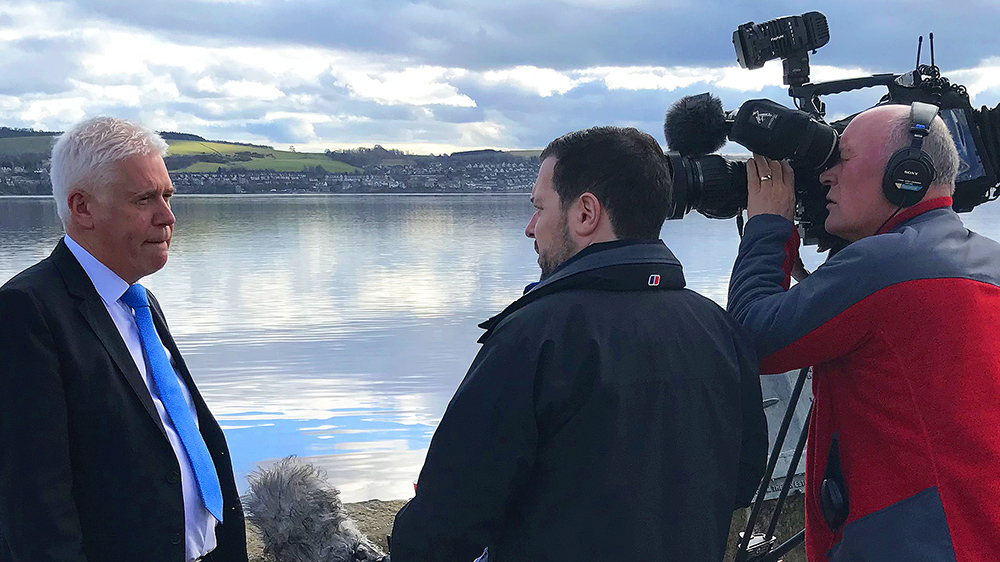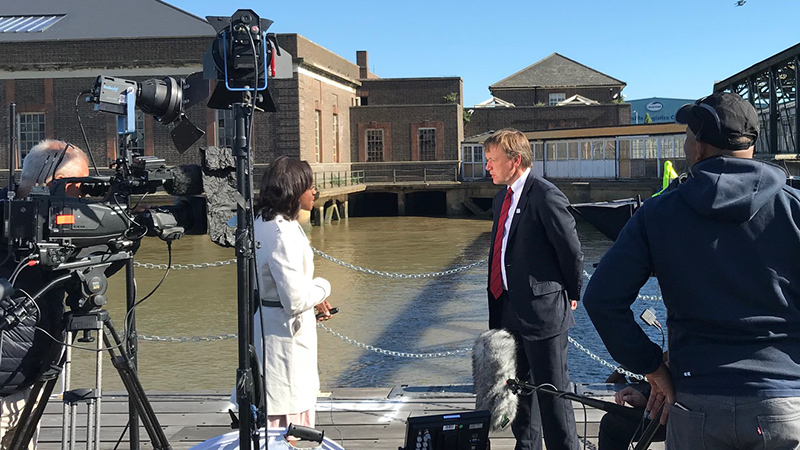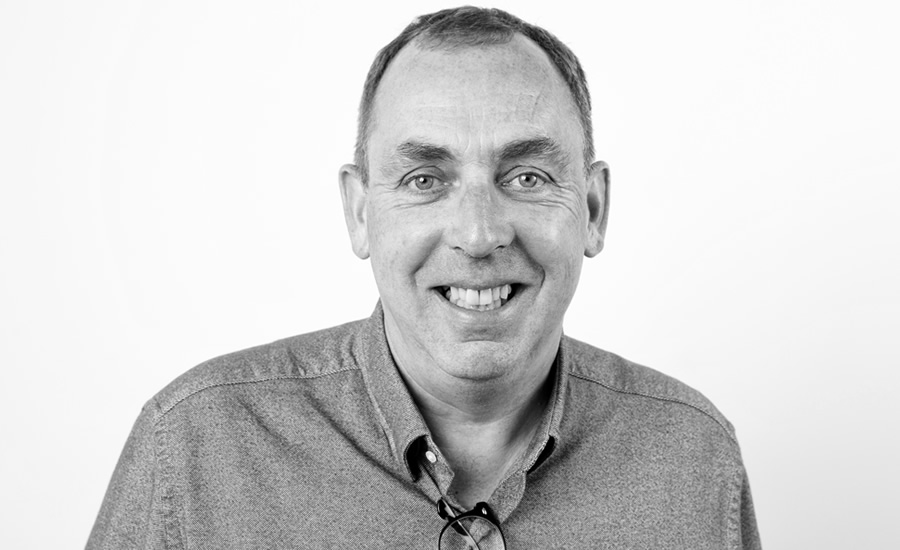In the first of our blog series, Spreng Thomson Managing Director, Callum Spreng, discusses our media training workshops and how they can help you when it comes to facing the media.
One of the most popular services we provide is broadcast media training. I think it addresses a kind of modern day primal fear (a contradiction in terms I know but forgive me) that senior people in organisations have that one day they’ll find themselves in front of a TV camera in a Paxman-esque battle for their lives.
The truth is of course somewhat different. It’s most likely that – with the help of a decent PR company – any encounter with a TV crew is going to be around something quite positive for the organisation and one that the CEO (or whoever) is happy to capitalise on. The combative approach is mostly saved for politicians who, by dint of their career choice, are viewed by most TV journalists as fair game.

Above: Callum Falconer from Forth and Tay Decommissioning being interviewed by STV
If there’s one lesson that I hope everyone who undergoes media training takes away from the session, then it’s that when they agree to a TV interview they’re entering into a mutually beneficial contract. By which I mean that while on the one hand they’re seeking the positive exposure that TV is still best placed to deliver, even these days, it’s also the case that the TV journalist / producer / programme editor needs good content. So, far from trying to trip up interviewees or slip them trick questions, most TV journalists conduct interviews in a way that helps the interviewee to give of their best.
I’m not suggesting that they’re soft interviews or that they avoid whatever the associated issues are – just that it’s not daggers drawn every time the cameras start to roll.
So it’s with that in mind that we seek to alter the mindset of clients who are facing the prospect of a TV interview from one of fluff-inducing fear to one of calm confidence.
 Above: Charles Hammond from Forth Ports with Sky News
Above: Charles Hammond from Forth Ports with Sky News
And there is no better way for that confidence to be cultured than by going through the pre-interview discipline of preparing key messages. There is simply no substitute for sitting down and physically writing down the (ideally) three things you want a viewer to take away from seeing your interview.
- It focuses the mind on what it is that you’re seeking to get across
- It’s a great way of memorising them
- It builds your own self-assurance about how well you’re going to handle the interview
So if you ever find yourself staring into the blackest of holes that is a TV camera lens, remind yourself of this: it’s going to be less traumatic than you thought; and ask yourself this: am I clear on my key messages?
Or, better still, come and talk to us about media training now and make sure you’re as prepared as you can be for what’s likely to be the highest profile promotional opportunity you can get.



